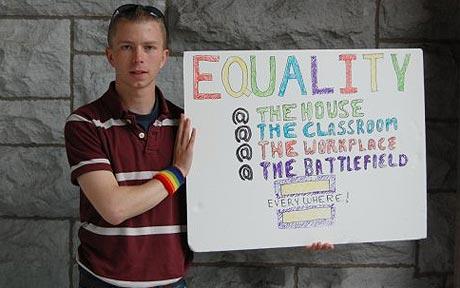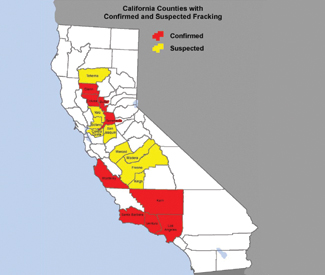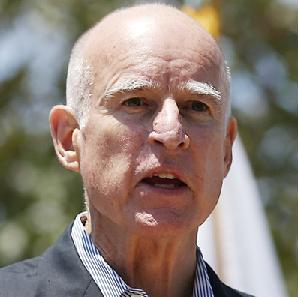Norman Solomon is co-founder of RootsAction.org and founding director of the Institute for Public Accuracy. His books include “War Made Easy: How Presidents and Pundits Keep Spinning Us to Death.” He writes the Political Culture 2013 column.
The Nobel Peace Prize that President Obama received 40 months ago has emerged as the most appalling Orwellian award of this century. No, war is not peace.
George Carlin used to riff about oxymorons like “jumbo shrimp,” “genuine imitation,” “political science” and “military intelligence.” But humor is of the gallows sort when we consider the absurdity and tragedy of the world’s most important peace prize honoring the world’s top war maker.
This week, a challenge has begun with the launch of a petition urging the Norwegian Nobel Committee to revoke Obama’s Peace Prize. By midnight of the first day, nearly 10,000 people had signed. The online petition simply tells the Nobel committee: “I urge you to rescind the Nobel Peace Prize that was awarded to Barack Obama.”
Many signers have added their own comments. Here are some samples:
“It is with very great regret that I sign this petition, but I feel it is morally the right thing to do. I had phenomenally high hopes that our President would be a torch bearer for the true message of Peace. Instead he has brought death, destruction and devastation to vast areas of the world, and made us less safe by creating more enemies.” Sushila C., Punta Gorda, FL
“War is nothing to be given a peace prize for.” Brent L., San Diego, CA
“President Obama has clearly demonstrated that he is undeserving of the Nobel Peace Prize. Revoke his prize and give it to Bradley Manning!” Henry B., Portland, OR
“Perhaps a better president than Bush or Romney, but not a Nobel laureate for peace.” Arun N., Woodinville, WA
“I honestly cannot understand how they could bestow that honor on President Obama to begin with; I’m still puzzled!” Cindy A., Phoenix, AR
“Giving the prize to President Obama has degraded the esteem the Nobel Prize once had as a means of recognizing the best of us. It now represents a pat on the back for the thugs that roam freely amongst our governments. That decision has made me question the integrity of all previous nominations, and wonder if the entire Nobel Prize program is nothing but a sham.” Juan F., Arcata, CA
“Continued occupation of Afghanistan and drone strikes across national borders are NOT the actions of a peacemaker. Mr. Obama has defiled the good will of the Nobel prize.” Dudley D., Chicago, IL
“His actions are speaking louder than his words. He has continued Bush’s torture policy and both wars. He has sent armed drones in to remote places and only questionably killed terrorists, but definitely killed civilians. He does not deserve it.” Katherine M., San Diego, CA
“Les espoirs envers Obama étaient élevés, les résultats décevants.” André T., Quebec City, Canada
“A President for Peace? Tell that to the thousands of innocent men, women and hundreds of children that have been killed in drone strikes during the Obama administration. It was laughable that this coveted prize was given to him in the first place but now it is just obscene!” Barlee R., Antioch, CA
“Allowing the Nobel Peace Prize to remain in Obama’s name forsakes the very creed the prize is meant to represent. Please don’t (continue to) be a hypocrite — no way in Hell does that man deserve to be credited in any way for being a peacemaker. I said the same for Bush by the way — so don’t think I’m just some partisan nutcase obsessed with bashing Obama. I simply speak the Truth as often as possible and let the chips fall where they may. Many of us peaceful, compassionate folks would like to have this message droned into your collective heads. Obama is just another puppet doing the bidding of the greedy, mass-murdering global elite.” Greg C., Manhattan, KS
“The peace prize should be awarded to Pfc. Bradley Manning instead.” Robert F., Santa Clara, CA
“This would be an extraordinarily bold move, but it certainly would send a message to the world that peace means peace, not war.” David G., Portland, OR
“I so wish President Obama had lived up to the award he was given. Instead he has chosen to continue and expand the horrors being perpetrated by our country. War is not ever the answer.” Carol G., Goshen, IN
“Droning people to death is not peace.” William S., New York, NY
“Not being George W. Bush was never sufficient ground for this award, and Mr. Obama’s enthusiastic support for the extension of empire, fossil fuels, raw military power, and other violence against the earth and its people is further evidence of its unwisdom.” Scott W., Durham, NC
“One must walk the walk of peace, not just talk the talk of peace in order to earn the Peace Prize.” Paul M., Los Angeles, CA
“Drone Bombs create more terrorists than they kill.” Jay J., Roachdale, IN
“A war criminal is not worthy of the Nobel Peace Prize.” Lars P., Afton, WI
“Our President had an unprecedented opportunity to effect a turn-around in foreign policy after the illegal and failed wars of his predecessor. He was hired to do so; but he has squandered the opportunity and has in fact increased U.S. aggression. He does not deserve to be known as a Nobel Peace Prize recipient.” Lynn J., Roslyn, PA
“The PEACE prize should be given to those that work toward PEACE, not the ones that only talk about it.” Karen W., Weirsdale, FL
“Take it from Obama and give it to its rightful owner, Bradley Manning.” Rand K., Hotchkiss, CO
“I urge you to rescind the Nobel from this coward who kills children with drones. Are you intentionally making the peace prize a joke or are you just not too bright?” Janet M., Charlottetown, CA
“He’s not as big a war criminal as Kissinger, so you should revoke both.” Earl F., Santa Maria, CA
“This man is a disgrace in the cause of peace. What were you thinking?” Sherrill F., Davis, CA
“Given his actions and policies, Obama is more a Man of Pieces — as in, ‘Blow them to pieces!’ — than he is a Man of peace.” Marcus M., San Rafael, CA
“He’s done nothing to deserve it; and he’s done many things to destroy peace in this world.” Danny D., Shoreline, WA
“This human has killed more after he got the prize.” Thomas P., Lewiston, CA
“He obtained the award on promises he didn’t keep.” Ron B., Bend, OR
“President Obama’s actions have shown that his words were meaningless. The Nobel Peace Prize means little if it’s so easily given away.” Debra J., Pasadena, MD
“As an Obama voter I am deeply disappointed. It was bad judgment to give it to him in the first place.” Tim K., Long Prairie, MN
“Drones are offensive weapons, in every sense of the word.” Richard F., Portland, OR
“As much of an Obama supporter I am, perhaps stripping him of this award would get his attention, nothing else seems to be getting the message across that the American People have had enough of multiple trillion dollar unnecessary wars.” Vern M., Albuquerque, NM
“Obama is a smiling war monger.” Jon M., Wellington, New Zealand
“Under Obama’s leadership our assassination-by-drone foreign policy has increased dramatically, which makes him a war criminal.” Frank S., Bellingham, WA
“As a constituent and two-time voter for Barack Obama, I am dismayed and frightened at the warmongering ways he has displayed as our leader. I urge the revocation of his undeserved Nobel prize.” Samuel P., Colton, CA
“What a good idea! Yes, he has the blood of many innocents on his hands.” Gene A., Athens, OH
“He should have never got it in the first place!” David S., Everett, WA
“I voted for the president in both elections but I do not feel he ever deserved the Nobel Peace Prize! Please rescind it!” Carol H., Michigan City, IN
“Please start with Henry Kissinger before Obama, whose hands are tied.” Bob S., Gibsons, BC, Canada
“Giving him a Nobel Peace Prize is an affront to the deep heritage of true peacemakers who well deserved it. Obama has waged continuous war, torture and other violence since being President. Please revoke it now.” Barry S., Macdoel, CA
“Bush gave us 2 unfunded wars. Will Obama add a few more? Stop wars, drones and killing with other people’s children.” Burt S., Pompton Plains, NJ
“I voted for Obama — twice. I am very sad to sign this petition, but I believe in my heart, what he has done with drones is totally wrong!” Gloria H., Santa Rosa, CA
“Obama’s deeds do not match his words.” Evalyn S., Walnut Creek, CA
“You lost any credibility giving Obama the peace prize. Fix it.” Camilo B., Long Beach, CA
“Obama’s harsh treatment of whistleblowers who are trying to expose the outlandish abuses of the military/corporate state disqualify him from any awards given to peacemakers.” David L., Alamosa, CO
“It’s real sad that the promises that were made by Barack Obama concerning nearly everything have been lost with his sellout to corporate greed. We need a real leader for Peace.” Al B., Ignacio, CO
“I had high hopes for this President when I voted for him. I believed him to be a peace maker, unlike the hawk who was his predecessor. However, there seems to be no effort at peacemaking, at reconciliation, at hope, and killing-by-drone simply leads to more fear and hatred. I fear the day that the government will try to control US with them, too.” Louise A., Greenfield, MA
“You gave him the Nobel Peace Prize too soon. His use of drones and killing of innocent civilians attests to his being anything but a peace-maker.” Rev. Sandy G., San Francisco, CA
“It is not a good example of what peace means when the Nobel Prize is awarded to the leader of a nation engaging in war as a business strategy. Make a statement, please.” Chandra P., Walsenburg, CO
“I, like so many others, gave this man the benefit of the doubt. It has been thrown back in our faces.” Chris C., Harrogate, Great Britain
“He never deserved it and he hasn’t earned it. Yes, please, take it back.” Jackie F., Oakland, CA
“The Nobel Peace Prize should not be awarded to war mongers and war criminals. Therefore, please revoke the Peace Prize you awarded to President Obama in 2009.” Fred N., Pleasanton, CA
“It is with deepest regret we ask for this but our President’s actions have not lived up to the high honor of promoting peace.” GlendaRae H., South Bend, IN
“I don’t think anyone ever understood what Obama was supposed to have done to have deserved the Peace Prize in the first place. And I’m a lifelong Democrat, so my feeling that the Nobel Committee made a mistake is not based in political partisanship.” Steve J., Hermosa Beach, CA
“It appears that preemptive peace prizes work about as well as preemptive wars.” Jaan C., Alameda, C
To read more comments, or to sign the RootsAction.org petition urging the Norwegian Nobel Committee to revoke President Obama’s Peace Prize, click here.
Norman Solomon is co-founder of RootsAction.org and founding director of the Institute for Public Accuracy. His books include “War Made Easy: How Presidents and Pundits Keep Spinning Us to Death.” He writes the Political Culture 2013 column.














